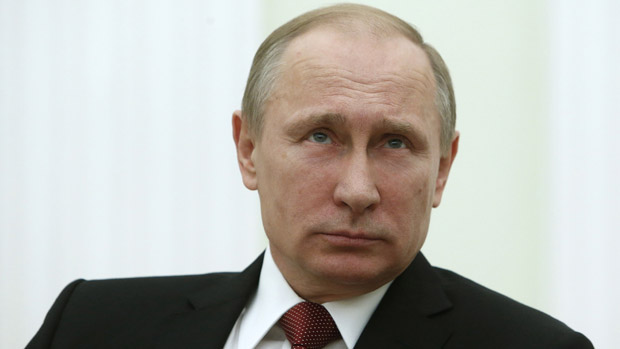Russia to decriminalise domestic violence
President Vladimir Putin reportedly bows to pressure from Orthodox church and ultra-conservative MPs

A free daily email with the biggest news stories of the day – and the best features from TheWeek.com
You are now subscribed
Your newsletter sign-up was successful
Russian politicians are set to pass new legislation that decriminalises all acts of domestic violence with the exception of rape and serious bodily harm.
Under the new law, which could be signed by the end of the week, beating a spouse or child will be punishable by a fine of less than £400, a nominal 15 days of "administrative arrest", or community service. Only broken bones, concussion or repeated offences will lead to criminal charges.
"Passage of this law would be a huge step backward for Russia, where victims of domestic violence already face enormous obstacles to getting help or justice," said Human Rights Watch.
The Week
Escape your echo chamber. Get the facts behind the news, plus analysis from multiple perspectives.

Sign up for The Week's Free Newsletters
From our morning news briefing to a weekly Good News Newsletter, get the best of The Week delivered directly to your inbox.
From our morning news briefing to a weekly Good News Newsletter, get the best of The Week delivered directly to your inbox.
It "marks a rapid volte-face by the government", says The Independent, with President Vladimir Putin bowing to pressure from the Russian Orthodox church and ultra-conservative MPs, who bitterly opposed new amendments to criminalise violence against relatives passed by the Duma last year.
According to Russian interior ministry estimates, 14,000 women a year die at the hands of their husbands or partners, while 600,000 a year face violent domestic abuse.
Russia's only domestic violence hotline, the Anna Centre, says as many as one in three women suffer physical abuse at the hands of their partners, while 40 per cent of all violent crimes or murders take place in the home.
A free daily email with the biggest news stories of the day – and the best features from TheWeek.com
-
 6 of the world’s most accessible destinations
6 of the world’s most accessible destinationsThe Week Recommends Experience all of Berlin, Singapore and Sydney
-
 How the FCC’s ‘equal time’ rule works
How the FCC’s ‘equal time’ rule worksIn the Spotlight The law is at the heart of the Colbert-CBS conflict
-
 What is the endgame in the DHS shutdown?
What is the endgame in the DHS shutdown?Today’s Big Question Democrats want to rein in ICE’s immigration crackdown
-
 Putin’s shadow war
Putin’s shadow warFeature The Kremlin is waging a campaign of sabotage and subversion against Ukraine’s allies in the West
-
 Alexei Navalny and Russia’s history of poisonings
Alexei Navalny and Russia’s history of poisoningsThe Explainer ‘Precise’ and ‘deniable’, the Kremlin’s use of poison to silence critics has become a ’geopolitical signature flourish’
-
 What happens now that the US-Russia nuclear treaty is expiring?
What happens now that the US-Russia nuclear treaty is expiring?TODAY’S BIG QUESTION Weapons experts worry that the end of the New START treaty marks the beginning of a 21st-century atomic arms race
-
 Epstein files topple law CEO, roil UK government
Epstein files topple law CEO, roil UK governmentSpeed Read Peter Mandelson, Britain’s former ambassador to the US, is caught up in the scandal
-
 Iran and US prepare to meet after skirmishes
Iran and US prepare to meet after skirmishesSpeed Read The incident comes amid heightened tensions in the Middle East
-
 Israel retrieves final hostage’s body from Gaza
Israel retrieves final hostage’s body from GazaSpeed Read The 24-year-old police officer was killed during the initial Hamas attack
-
 China’s Xi targets top general in growing purge
China’s Xi targets top general in growing purgeSpeed Read Zhang Youxia is being investigated over ‘grave violations’ of the law
-
 Ukraine, US and Russia: do rare trilateral talks mean peace is possible?
Ukraine, US and Russia: do rare trilateral talks mean peace is possible?Rush to meet signals potential agreement but scepticism of Russian motives remain